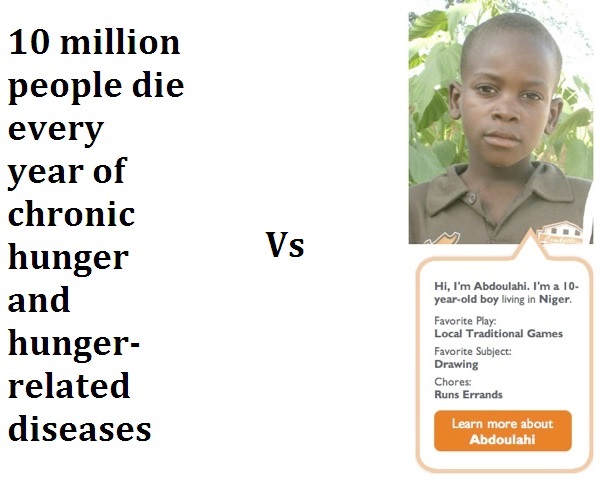
“Your data isn’t supporting my hypothesis.” When my colleague heard this from the director of a leading MNC, he was a little flustered. He regained his composure and explained that data is pure and hypothesis is, well, hypothesis. The director wasn’t amused. My colleague, who was rather junior at that time, was rescued by his boss, who later told him to find data that suited the director’s hypothesis. When asked how, the boss said “If you torture the data enough, it will confess.” And so, the data was tortured to support the director’s hypothesis.
We often believe in the primacy of data over hypotheses. We believe information should change our beliefs and perceptions, and data seals the argument. Where are your facts, we argue. When we get in to a heated debate, we dig up facts to support our case. How many times has this strategy helped? My guess is, rarely.
We see politicians and experts go on and on about GDP data, fiscal deficit, unemployment, inflation, sector specific growth numbers. Everyone believes the facts are on their side. As a viewer, we get thoroughly confused, for these facts rarely help us make up our mind.
We would like to think of ourselves as analytical and rational beings, that we go by facts and are objective in our judgements. “Let the facts speak for themselves” is an oft heard cliché. How true is this assumption?
At one level, Objective Fact is a myth. Facts change, depending on the source, time period, start period, whether looking at averages, or absolutes... there are a number of ways these facts can be twisted.
At another level is shifting the goalpost. One person argues that there has been a spectacular growth in a state’s GDP. A rival goes off on a different tangent and says malnutrition has increased, or that a certain sector has shown negative growth, or that the law and order situation has worsened.
Perhaps, most significant is that the very assumption of our rationality and objectivity is wrong. Our views, decisions and behaviour is coloured by various biases.
Let’s look at the data thing from two perspectives: 1. Confirmation bias and, 2. Affect heuristic.
Confirmation bias is our tendency to seek out favourable information that supports our beliefs and hypotheses. This could be both in terms of looking for information that suits our beliefs, and interpreting it in a way that confirms our beliefs.
Worse, this bias is even stronger in emotionally charged issues or in matters of long-held beliefs, like religion. Take the issue of gun control in the US. After the recent spate of shootings, the anti-gun lobby said these shootings are proof that guns cause a lot of homicides and they should be controlled. The pro-gun lobby interpreted this differently. Not enough guns, they said, even teachers should be given guns.
In his essay “What Is Art?”, Tolstoy wrote, “I know that most men – not only those considered clever, but even those who are very clever, and capable of understanding most difficult scientific, mathematical, or philosophic problems – can very seldom discern even the simplest and most obvious truth if it be such as to oblige them to admit the falsity of conclusions they have formed, perhaps with much difficulty – conclusions of which they are proud, which they have taught to others, and on which they have built their lives.”
Now that we are in an election year, we will see many debates on national TV and among our friends and families on who has a better track record. Each will look for facts that support their argument the most. There will not be any meeting ground, because we are all are biased.
The other perspective is affect heuristic.
Wikipedia says, “The affect heuristic is a heuristic, a mental shortcut that allows people to make decisions and solve problems quickly and efficiently, in which current emotion – fear, pleasure, surprise, etc. – influences decisions. In other words, it is a type of heuristic in which emotional response, or “affect” in psychological terms, plays a lead role. It is a subconscious process that shortens the decision-making process and allows people to function without having to complete an extensive search for information.”
So, if we like someone/something, we see the benefits as high and the risks as low, and vice versa. And since the first response to any stimulus is emotional, this plays a huge role in our decisions. If we like a particular leader or a party, we only look at their good deeds, and ignore their mistakes. Since this doesn’t happen with conscious awareness, we do not admit to this bias. We will argue by saying, “These are the facts. Don’t go by my word. Check for yourself.”
And this usually isn’t a winning argument.
So, if facts don’t work, what does? Stories are a good alternative. So are emotions. And in many ways, they’re interlinked.
Mathematician John Allen Paulos, author of Innumeracy and many books on math, in a New York Times column says, “There is a tension between stories and statistics, and one under-appreciated contrast between them is simply the mindset with which we approach them. In listening to stories we tend to suspend disbelief in order to be entertained, whereas in evaluating statistics we generally have an opposite inclination to suspend belief in order not to be beguiled.”
Charities have figured this. So these days some of the smart charities use a different approach to raise funds. Instead of talking statistics and how many people are affected, etc., they pick a story.

In an experiment conducted at Carnegie Mellon University in 2007 by Deborah Small, George Lowenstein and Paul Slovic, students who received the fact-based appeal from Save the Children donated $1.14. Students who read the story about one of the children donated an average of $2.38, more than twice as much.
So, data without emotion is impotent.
If you want to win an argument, stories and emotions are a better bet than data. Not that they are a foolproof method, but they may be more effective.
So, don’t get exasperated if others don’t see the facts as you see them, for you are not seeing the facts the way they see. We are all biased and it’s not the facts, but the emotion behind the facts that speak for themselves.
Ram Prasad is a co-founder of FinalMile, a Mumbai and Chicago based research & design consultancy that solves complex behavioural challenges. Its practise of Behaviour ArchitectureTM is built on the precepts of cognitive neuroscience, behavioural economics and design. These sciences challenge existing paradigms on human condition and behaviour. FinalMile's work spans the commercial as well as the social/developmental sector. In his earlier roles, Ram dabbled in branding, design, M&A, marketing, innovation and communications. He has delivered guest lectures at leading institutions in India and Europe.